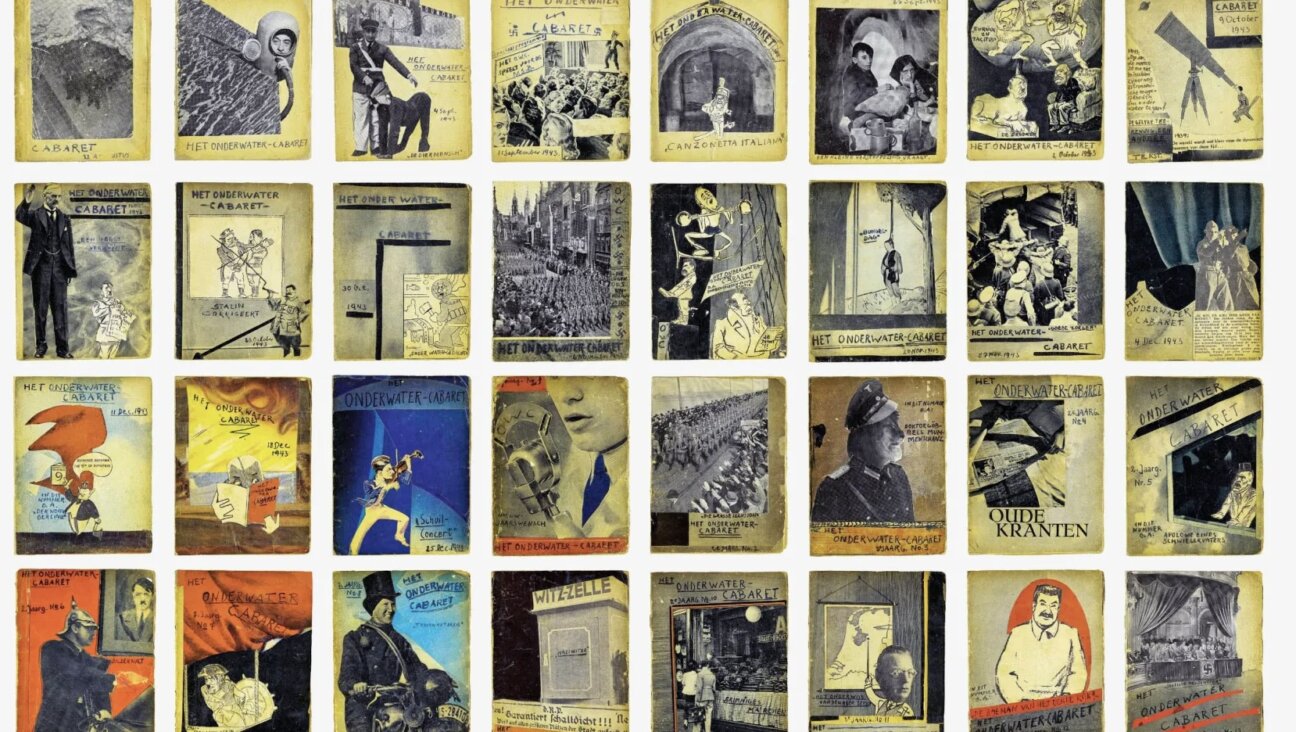Brooklyn Nags Breathe a Sigh of Relief at ‘King of the Horse Poisoners’ Capture

Image by Forward Association
1914 • 100 years ago
Attack of the Horse Poisoner
Hyman Edelstein, or, as he is known to the police, the “King of the Horse Poisoners,” was arraigned in a Brooklyn courtroom for having allegedly approached a Brooklyn horse handler, Charles Rosenbaum, demanding $100 or he would “poison his nags.” Rosenbaum handled the situation cleverly, telling Edelstein to come back in a little while. In the meantime, Rosenbaum called some colleagues, who could act as witnesses when Edelstein came back. When the King of the Horse Poisoners did return and began renewing his threats to poison the horses, the police were called and Edelstein was arrested. The witnesses Rosenbaum had secured testified that they did indeed hear Edelstein attempt to extort money and threaten to poison Rosenbaum’s horses if he didn’t get it. After a quick trial, the jury found him guilty.
1939 • 75 years ago
Worrying Faith of St. Louis
As the saga of the German Jewish refugees aboard the ship St. Louis continues, the permission the ship had been given to remain in Cuba was revoked. Compounding the tragedy of the refugees, who are now homeless wanderers, a number of the despairing Jews have committed suicide. For Jewish organizations like the American Jewish Joint Distribution Committee and HIAS, the main issue is finding a refuge, since there is no question that the sea-borne Jews cannot return to Germany. Currently, the JDC has announced that it has found places in a variety of European countries for the 907 refugees. Holland agreed to take 194 of the passengers, and the rest will be split between Belgium and France.
1964 • 50 years ago
Trial of Auschwitz Administrator
In the ongoing trial of the Auschwitz administrator Josef Klehr, testimony given by a Polish eyewitness, Stanislaw Glawa, who worked at the camp hospital, indicated that the procedure for dealing with newborn children was to throw them in the hospital incinerator. The witness added that when there was an outbreak of typhus in the camp, Klehr and his cronies murdered anyone whom they suspected of having the disease. Glawa added that the Nazis didn’t do anything about the lice that carried the typhus, and instead just killed those suffering, or those thought to be suffering from the disease. In addition to killing the victims, Glawa claimed that the Nazis had plans to kill the entire hospital staff, from the doctors on down, as they feared a typhus epidemic.
















